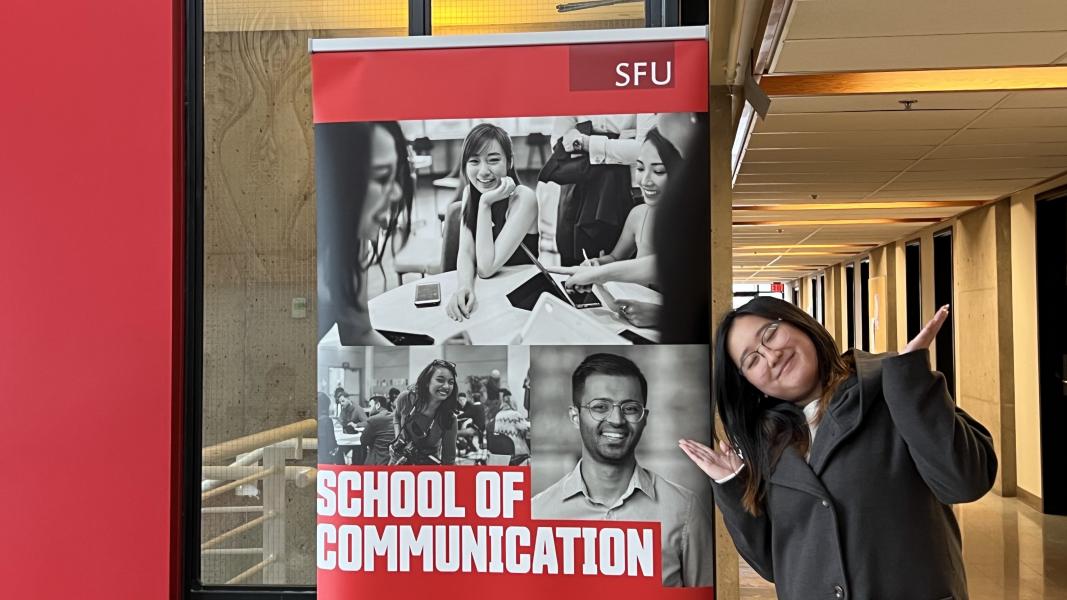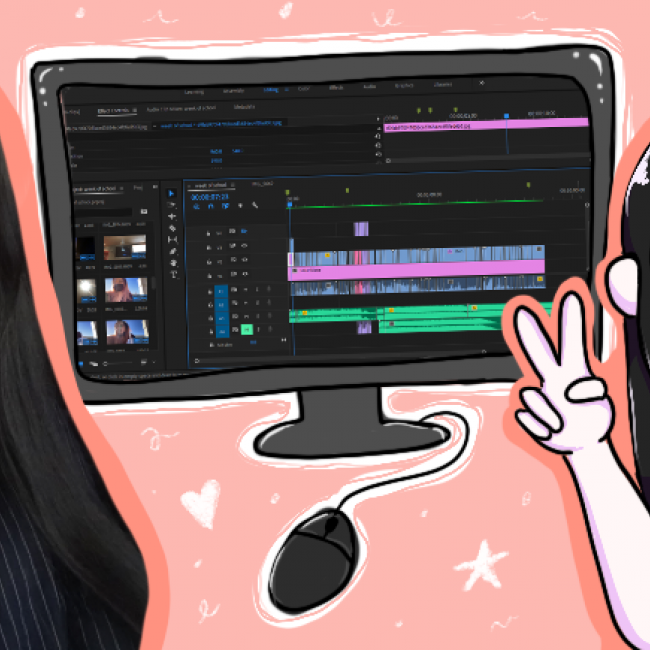
There is a lot of value that can come from pursuing a minor. One of them is it can help a student focus on a specific or specialized area within a field of interest. Whether you’re doing a minor in Communication as a Business major or doing a Psychology minor as a Criminology major, a minor can help define an area of focus for a career path or general range of knowledge. When making that choice, there are a lot of factors to consider that can influence a student’s final decision. Does this minor pair well with my major? What area within my career field could this appeal to? How might this impact my graduation date? Are all questions that can come to mind during the beginning stages of considering a minor.
When I was a first year, picking a minor was always something that I knew I wanted to do. As a Communication major, the degree itself felt a bit broad and pairing it with a minor seemed to naturally narrow the direction of the type of work I could visualize myself doing. With this in mind, my heart was set on taking an IAT minor. The Interactive Arts and Technology program offered many design and technical courses that seemed useful to learn from. However, there was one big problem: Math, and I was terrible at it. This dilemma resulted in a long 2-and-a-half-year period of procrastination. Committing to a minor added work and time and quickly became intimidating to tackle. By the time it was halfway through the third year at SFU, I realized that it was beginning to become quite late to pick a minor to pursue. That’s when I went into overdrive and started researching and planning everything down to the smallest details.
I found that it immensely helped to write down the expectations with what I wanted out of a minor. Take into consideration achievements that would be valuable, experience and/or knowledge that would apply to what your end goal looks like, and what form of this experience would be.
The area of focus I hoped to pursue was in producing more creative and project-based works. The expectations I had for the minor would be to gain more hands-on experience and to adequately present material from courses that could be used in a portfolio or spoken about for potential job opportunities.
Each faculty has a list of possible minors available to take and these choices are curated to narrow down the area you may want to study. I found that staying within the same faculty as my major worked best for the goals I had set for myself. A benefit from staying within the same faculty is that the question of whether the minor pairs well with your major or other minor(s) isn’t as difficult to answer. Oftentimes, lower division requirements needed for a minor may already be fulfilled by courses taken for your major within the same faculty.
Through this process, I ended up stumbling upon the Publishing Program offered at FCAT and realized that I had, unbeknownst to me, already finished the lower division requirements needed for the minor.
There are a wide range of courses at SFU. Although it may seem like a given, look into the specific courses you are interested in taking. Sometimes, the type of courses offered differs from what you might have initially thought the program focused on. Reading the course descriptions from past semesters can define the type of work you would be doing throughout the semester and within the program in general.
It can be helpful to gain peer perspectives by asking other students studying your major such as friends/peers or looking through online forums and websites regarding SFU courses. My general routine became first searching through Facebook groups (an example would be student led ones like Must Knows for Courses at SFU), looking up its rating and reviews on websites (such as CourseDiggers.com), and finally scrolling through threads regarding the course (oftentimes on Reddit or Facebook group chats). Of course, hearing about a course from a student’s perspective firsthand is the most ideal. However, if you aren’t able to ask anyone, this is an excellent alternative. Though, do keep in mind that the anonymity of some of these formats may bring out some biased information that can influence the review.
Writing, scheduling, or creating a general outline of what the next year will look like after declaring your minor is a crucial organizational step. It can help you stay on track of requirements, speed up course selection and registration, and give yourself a rough idea of what your remaining time at SFU will be. Though you don’t need to stick to this plan, it’s always beneficial to get a sense of what the coming semesters have in store and navigate accordingly.
SFU Academic advisors are there to provide advice or resources needed regarding your academic career. At what point in time you may want to go to an academic advisor differs from person to person. Going to one near the beginning of the process could offer a good starting platform in your planning or checking in with them midway can speed up the decision-making process. Personally, I found it helpful to go see an advisor after I had a general layout of the steps above, to ask for their thoughts and advice. Though doing everything on your own is possible, walking through your plan with an academic advisor provides you with an extra boost of confidence. An advisor will let you know whether what you have set for yourself is achievable or if it may need to be altered in any way and could also have other suggestions you might not have considered. Academic advisors are quite easy to contact offering multiple different methods of meeting.
One of the harder challenges when starting a minor later into your degree is dealing with the timeframe of graduation date expectations. There is pressure to graduate within a certain number of years for the respective degree. Whether this is a personal goal or circumstantial regarding the environment you are in, managing the time will have its ups and downs. A large struggle is finding and getting into courses that truly interest and benefit you in your available timeframe. Attempting to get through the requirements as quickly as possible, whilst still enjoying the learning experience, in consideration of gaining relevant knowledge, started to become much more difficult than I had originally anticipated. There were times when there was a seemingly perfect course to take that covered a subject I wanted to learn; however, it would not be offered until a much later semester. As a fourth year, pushing back my graduation for a singular course was not feasible. This is an example of something that I had not factored in when planning for my late minor and it ended up being a frequent occurrence. There will be moments of compromise and you should be prepared to take them on.
Starting something new later than expected can be stressful, but I believe that the experience gained from it is worthwhile. Despite all the extra effort, taking on the challenge of pursuing a Publishing minor late into my degree is something I will not regret doing. The knowledge and genuine connections made throughout this process has been an amazing experience and opportunity to have; and I want this same experience for anyone finding themselves in a similar position. By rigorously researching and planning, the journey of finishing up the program’s requirements felt much easier to do and aided in making the transition from managing both a major and a minor go by smoothly. This experience has also positively influenced the way in which I tackle tasks in the future as well. Organization is a quality that can be difficult to implement in life, but this process showed the ease and benefits it can bring in the long run. Remember to enjoy the learning process during your academic journey and hopefully this blog will be able to aid you on this road to graduation. Planning and organization are key to making this process a lot less scary and I only hope to pass on this wisdom. I wish you the best of luck.
















